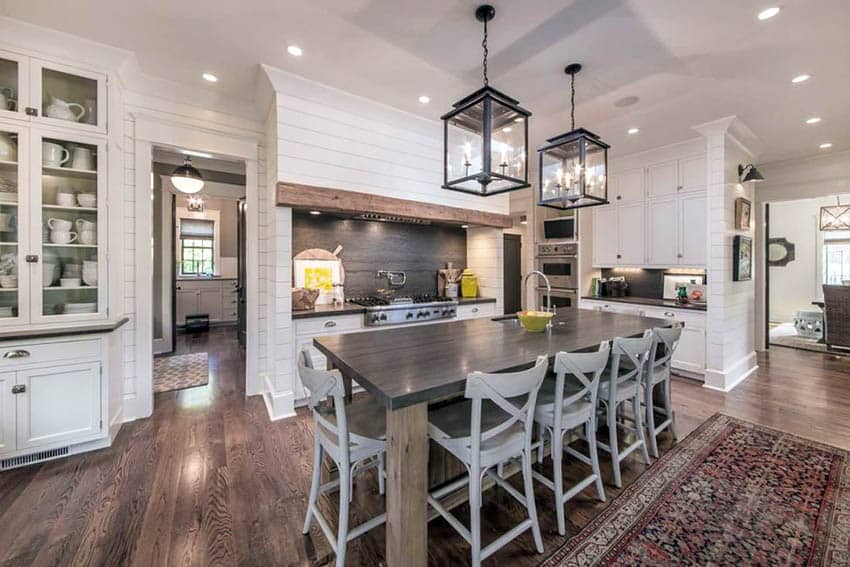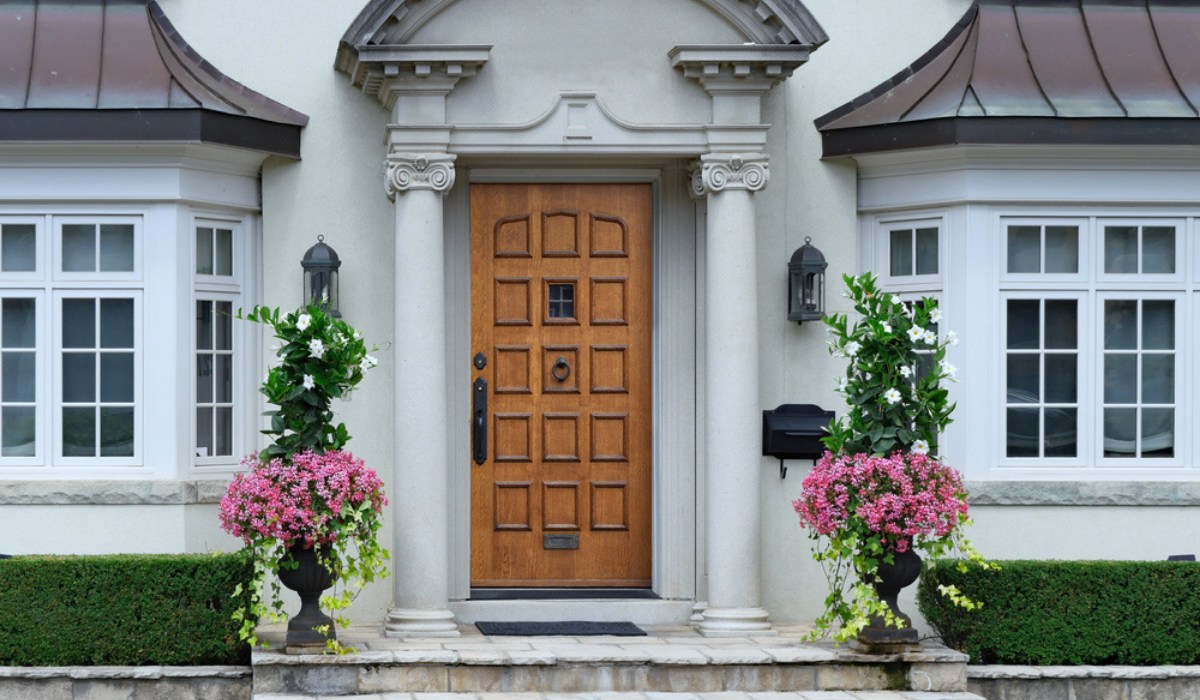
A house shingles siding can add a lot of curb appeal to your home. This siding can be quite expensive. If you're thinking about using it, make sure you get a professional to install it for you. Getting it wrong could cause serious damage to your property and result in costly repairs.
Staggered shingle roofing is an option for homeowners who are looking to add a shingle to their home. This will help reduce the chances of your shingles breaking or leaking. Avoid placing too many shingles on the roof if you plan to install a lot. This can cause shingles to become brittle and lose their lamination.
The swing stick is an effective tool to mark out a shingle layout. Line up your swing stick with the wallsill or window frame, and then trace the line using a pencil. The line should be just a few inches above top of the shingle.

It's also recommended to use a story pole when measuring for the shingles. Depending on the size and shape of your home, this pole should measure at least three to four foot long. The story pole can be used to ensure the shingles are straightened and even.
Another advantage of using a story pole is the ease of measuring. The height of your wall will dictate the length of your pole. If you're not able to use a story pole, you can use a tape measure.
There are many options for shingle siding. You will want to match your exterior trim with the right material. It's also a good idea to use a caulk to seal the joints between the siding and the trim. This will increase the life expectancy of your siding.
As you consider which type of shingles to choose, be sure to review your local building codes. They might have special requirements for the installation of house shingles. You can ask your local contractor for clarification if necessary.

Before you even start, you should establish your budget. This is important as it allows you to narrow down the options based upon cost. For instance, engineered wood siding is inexpensive, but is also very sturdy and durable. It comes in many colors and finishes. It is also important to read the warranty. Some companies offer a lifetime warranty on their siding.
The best part about wood siding is that it can last for years, as long as you take care of it. You'll need to keep an eye out for potential damage and pests. This siding may attract rodents and termites. You'll need to keep an eye on them and try to eradicate their entry points.
The style of shingle you choose will depend on your personal preference, budget, and how much space you have. You may be able find vinyl siding with a similar appearance at a lower cost. You might not be able match the durability of natural timber.
FAQ
Is it better to finish floors or walls first?
The best way to start any project is by deciding on what you want to achieve. It's important to think about how you are going to use the space, who will use it and why they need it. This will help to decide whether flooring or wall coverings is best for you.
Flooring may be an option if you are planning to make an open kitchen/living room. If you have chosen to make this room private then you could opt for wall coverings instead.
Can you live in a house during renovation?
Yes, I can live in a house while renovating it
You can live in a house that is being renovated while you are renovating it. The time taken to complete the work will impact the answer. If the renovation takes less time than two months, then no, you can still live in your home during construction. You cannot live in the home while renovations are taking place if they last more than 2 months.
There are many reasons why you should not live at home during major construction projects. You might be hurt or even die from falling objects on the site. Noise pollution and dust from heavy machinery on the job site could also be a problem.
This is particularly true if you live on a multi-story home. The vibrations and sounds that construction workers create can cause damage to your property and contents.
As we mentioned, temporary housing will be necessary while your home is being renovated. This means that your home won't provide all the amenities you need.
You won't be allowed to use your dryer or washing machine while they are being repaired. Additionally, the smell of paint fumes or other chemicals will be a constant annoyance as well as the banging sound made by workers.
All of these factors can create stress and anxiety for you and your loved ones. It is therefore important to plan ahead so that you don't end up feeling overwhelmed by the situation.
It is important to research before you start renovating your house. This will help you avoid costly mistakes down the road.
A reputable contractor can also be of assistance to you in order to make sure everything runs smoothly.
What room should I remodel first?
The heart and soul of any home is the kitchen. It's where most people spend their time cooking, entertaining and relaxing. Start looking for ways that you can make your kitchen functional and more attractive.
The bathroom is also an important part of any home. It offers privacy and comfort for daily chores such as washing your hair, brushing your teeth, shaving, or getting ready to go to bed. Consider adding storage to these rooms and installing a tub instead of a bathtub. You may also want to replace old fixtures with modern ones.
How long does it usually take to renovate your home?
It depends on how large the project is, and how long you spend on it each day. The average homeowner spends three to six hours each week working on the project.
How Much Does it Cost to Renovate a House?
The cost of renovations depends on what material is used, the size of project and how complicated the job is. Wood, for example, requires additional tools such as saws and drills. Steel, however is not so dependent. The price of renovation also varies depending upon whether you want your contractor to do everything for you or if you prefer doing some work yourself.
The average cost of home improvement projects ranges from $1,000 to $10,000. If you are looking to hire professionals, expect to pay between $5,000 and $25,000. If you hire professionals, the cost would be between $5,000 and $25,000. However, if the task is done entirely by yourself, the cost could rise to as high as $100,000.
You should know that there are many factors which determine the final cost of renovation. You should consider the material used, such as brick vs concrete. You can choose between brick or concrete, and the size of your project as well. These factors must be taken into consideration when estimating the cost of renovation.
Statistics
- ‘The potential added value of a loft conversion, which could create an extra bedroom and ensuite, could be as much as 20 per cent and 15 per cent for a garage conversion.' (realhomes.com)
- Rather, allot 10% to 15% for a contingency fund to pay for unexpected construction issues. (kiplinger.com)
- Design-builders may ask for a down payment of up to 25% or 33% of the job cost, says the NARI. (kiplinger.com)
- They'll usually lend up to 90% of your home's "as-completed" value, but no more than $424,100 in most locales or $636,150 in high-cost areas. (kiplinger.com)
- According to the National Association of the Remodeling Industry's 2019 remodeling impact report , realtors estimate that homeowners can recover 59% of the cost of a complete kitchen renovation if they sell their home. (bhg.com)
External Links
How To
Five Things You Must Know Before Starting Your Home Renovation
-
Are you sure that this is something you want to do? If you are planning to do major home improvements like renovating your bathroom or building new houses, you will likely need help. If you aren't confident enough to take on such a daunting task, you may want to reconsider. This could cost you a lot of money and time, and you may not get any real benefit from it. Instead, you can hire someone who knows their stuff to help. These people will save you time, stress, and provide a beautiful place to live in.
-
How much should I budget? This is a common question, but it can make renovations more expensive. You'll likely have to repay most of your costs at the end. You should stick to your budget, even if it's a tight one. Without it, you may end up paying a lot but not getting anything back.
-
Do I choose to hire professionals or DIY? - There's no right or wrong answer here, but we'd recommend hiring professional tradespeople if you can afford them. They'll give you the best advice possible on how to proceed with your particular project. They can install the plumbing correctly and make sure that it is done safely. On the flip side, DIY projects usually involve lots of trial and error, which means you'll have to learn a lot of lessons the hard way. You will also need to deal with the many issues that arise during the process.
-
What are my options? - Don't underestimate the cost of a renovation project. You might need to borrow money from family and friends to pay the bills. It is also important to consider the selling price of your current property when you plan on selling it soon after you have completed the renovations.
-
How do I begin? There's no right or incorrect place when it comes down to where to start. We recommend that you pick something that you are passionate about. You'll feel more motivated to work and less likely to procrastinate. You should also avoid areas that require extensive maintenance. If you have to deal with dirt and dust, don't try to redecorate the living room.